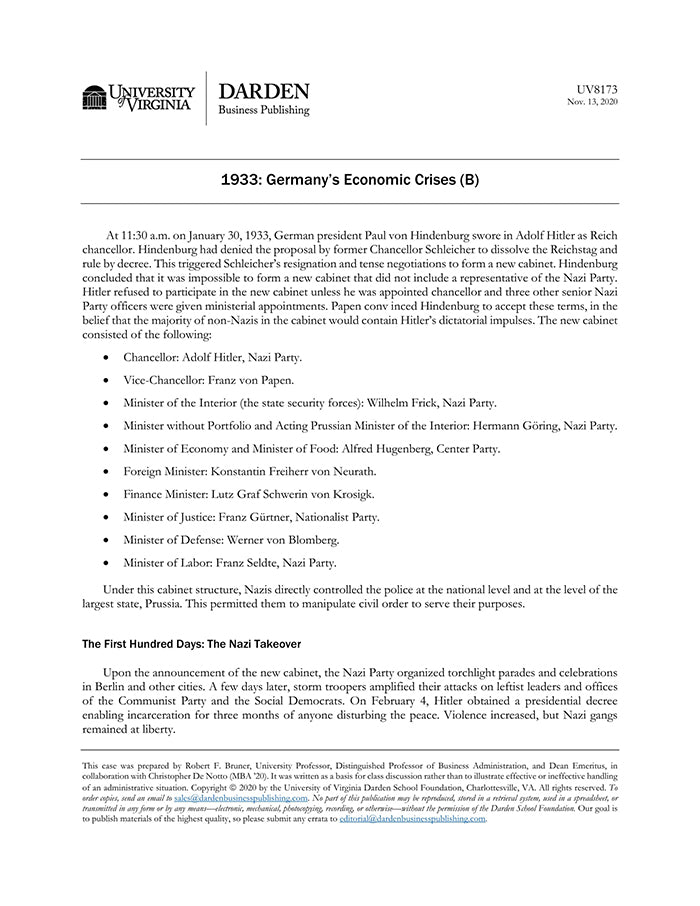1933: Germany's Economic Crises (B)
受取状況を読み込めませんでした
In January 1933, German president Paul von Hindenburg confronted the dilemma of whom to appoint as chancellor in the midst of the Great Depression, polarization of voters, civil unrest, rumors of a pending revolution or coup d' tat, and public distrust of the liberal democratic regime that arose out of the government collapse after World War I. His choice would determine the survival or demise of democracy in Germany. This case explores why an economic crisis might prompt abandonment of a constitutional democracy, as well as how authoritarian behavior by participants in a democratic government can destabilize democracy. The main task for the students is to recommend a course of action for Hindenburg that might preserve the democratic republic. This requires an appreciation of the reasons for the fragility of the German government, including the economic crisis that it faced.
【書誌情報】
ページ数:4ページ
サイズ:A4
商品番号:HBSP-UV8173
発行日:2020/11/12
登録日:2021/2/19


